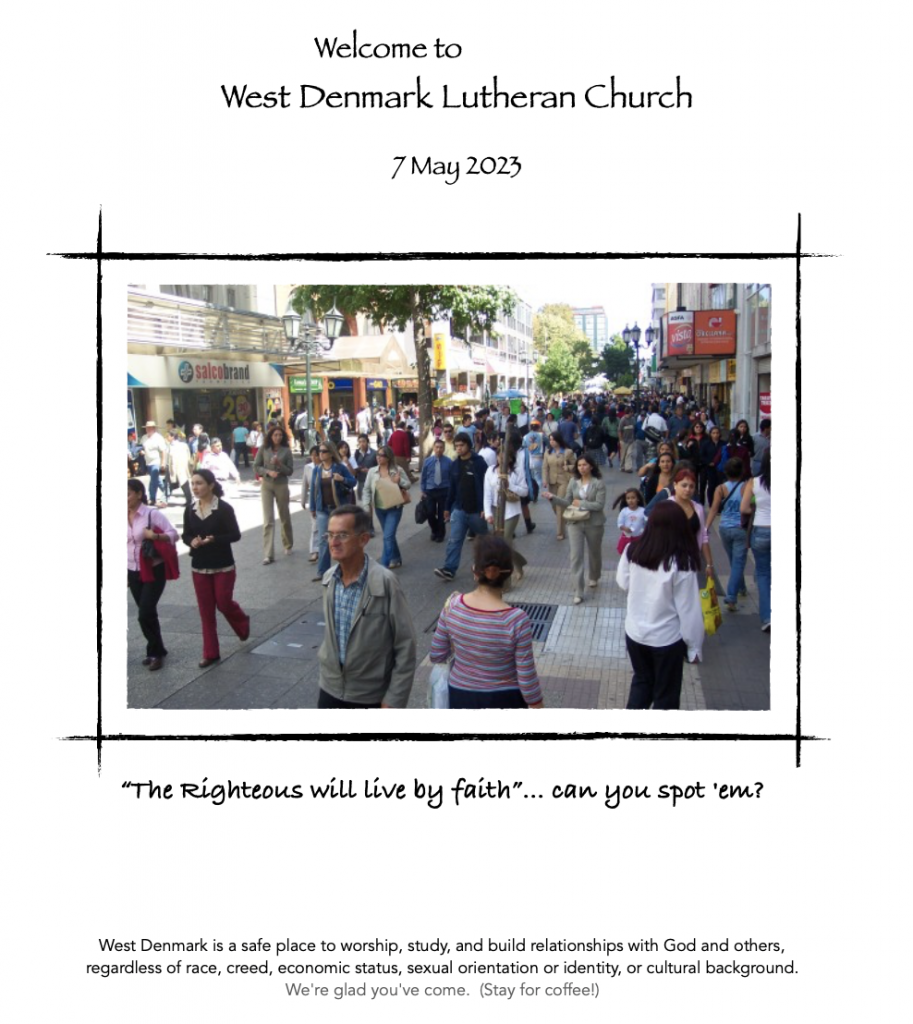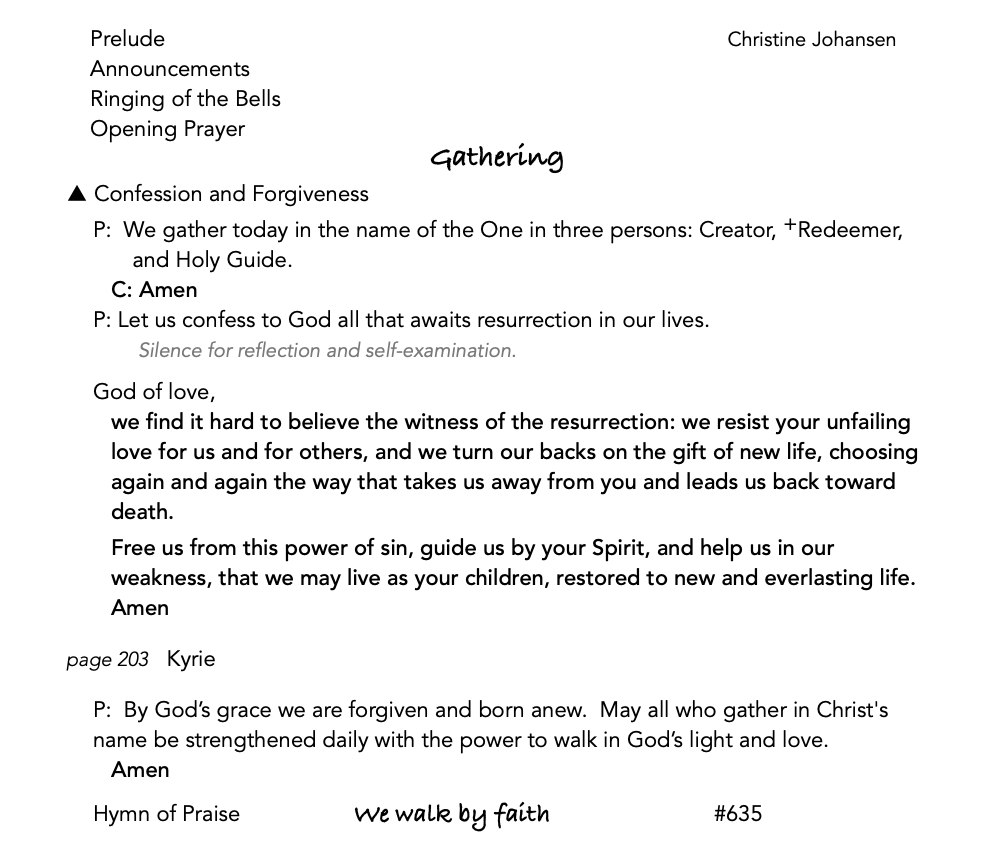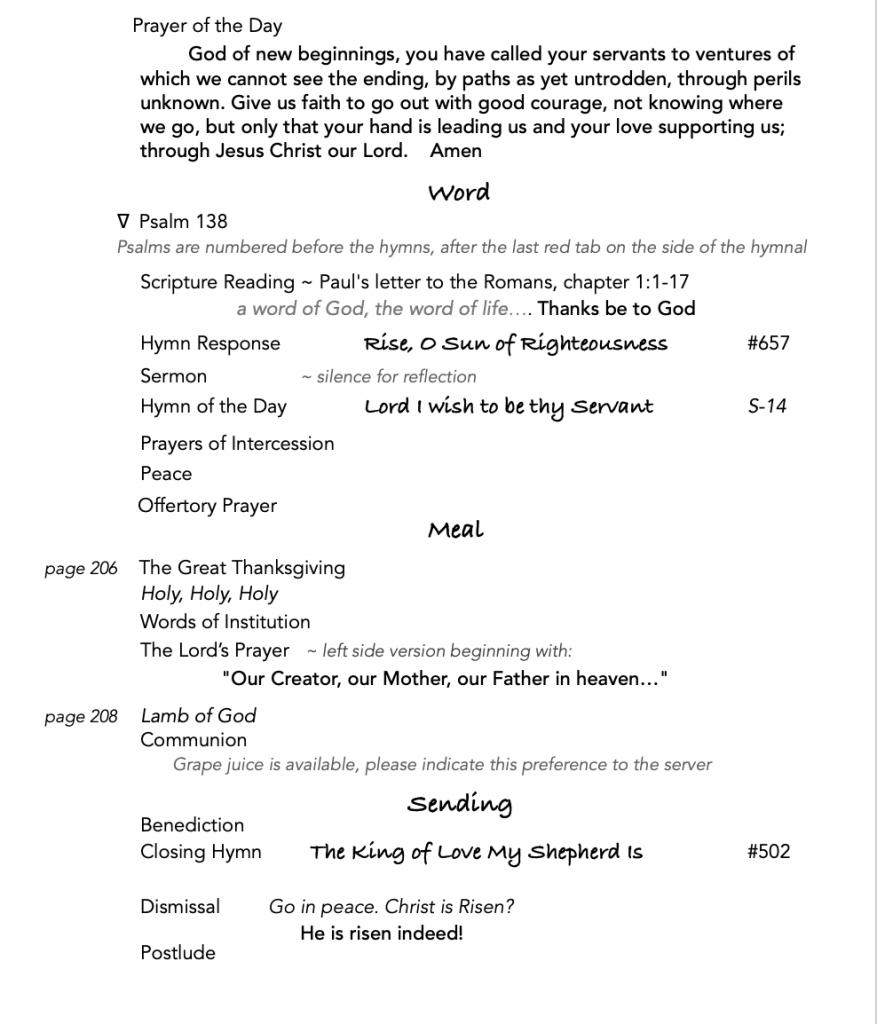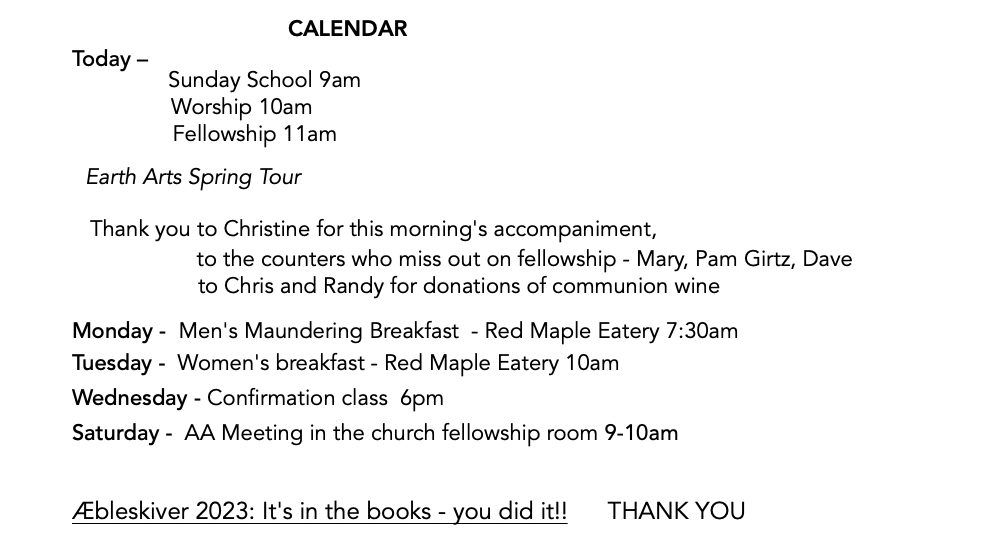Audio Recording



“Friends, Romans, and countrymen, lend me your ears”… We could have wished that the apostle Paul had William Shakespeare for a speechwriter. Instead, his letter to the Romans begins with a sentence employing eleven commas, a handful of parenthetical phases, and a colon. Although in Greek, it has no punctuation at all! Here we go:
Romans 1:1-17
Paul, a servant of Jesus Christ, called to be an apostle, set apart for the gospel of God, which he promised beforehand through his prophets in the holy scriptures, the gospel concerning his Son, who was descended from David according to the flesh and was declared to be Son of God with power according to the spirit of holiness by resurrection from the dead, Jesus Christ our Lord, through whom we have received grace and apostleship to bring about the obedience of faith among all the Gentiles for the sake of his name, including yourselves who are called to belong to Jesus Christ, To all God’s beloved in Rome, who are called to be saints: Grace to you and peace from God our Father and the Lord Jesus Christ.
First, I thank my God through Jesus Christ for all of you, because your faith is proclaimed throughout the world. For God, whom I serve with my spirit by announcing the gospel of his Son, is my witness that without ceasing I remember you always in my prayers, asking that by God’s will I may somehow at last succeed in coming to you. For I am longing to see you so that I may share with you some spiritual gift to strengthen you — or rather so that we may be mutually encouraged by each other’s faith, both yours and mine. I want you to know, brothers and sisters, that I have often intended to come to you (but thus far have been prevented), in order that I may reap some harvest among you as I have among the rest of the Gentiles.
I am a debtor both to Greeks and to barbarians, both to the wise and to the foolish — hence my eagerness to proclaim the gospel to you also who are in Rome. For I am not ashamed of the gospel; it is the power of God for salvation to everyone who has faith, to the Jew first and also to the Greek. For in it the righteousness of God is revealed through faith for faith; as it is written, “The one who is righteous will live by faith.”
A word of God, the word of life….thanks be to God.
In case you got lost, this is the introduction of Paul’s letter to the community of Christians in Rome about 25 years after Jesus’ death. It is likely the last letter of record written by Paul. It follows two decades of teaching, preaching and writing letters to the early churches as they separated from their Jewish roots, gained non-Jewish members, and forged a unique self-understanding as followers of Jesus Christ, the Son of God — followers of The Way.
Paul never made it to Rome – well, he did get there, but as a prisoner. A few years after this letter was written, history loses track of him and it is thought that Paul was killed in Rome after a lengthy imprisonment there. In this letter – although he is free, he identifies himself as a slave – a slave to Christ. As such, he is not bound to any other obligation, nor is he subject to the interests of patronage. As a slave to Christ he is free to speak under the authority of the One who claimed him on the road to Damascus. And through Christ, Paul connects the dots or weaves a web tying people together with each other and with God.
So, “descended from David according to the flesh,” as Paul says, is a statement about Jesus’ humanity, but it’s also a description of his Jewish identity. Paul’s primary “targets” are Greek and Roman – not Jewish, but he can’t explain who Jesus is without naming him as a Jew. Jesus was a real, distinct, certain person. However, Jesus is also for “all the nations” – for ‘Greeks and barbarians’, as he writes here. God’s choice of Israel was always meant to have a ripple effect out into the neighborhood. The chosen people were chosen to be a model of life with God. We remember Abraham’s call in Genesis – he was blessed to be a blessing, or the Hebrew people’s covenant to be a light to the nations. In the Jewish man, Jesus of Nazareth, God is calling and claiming all people, whatever their nationality, regardless of their culture or creed.
But this human Jesus is also, somehow, the “Son of God.” It would take centuries for the formulations and creeds describing the church’s understanding of Jesus’ humanity and divinity to be worked out. But Jesus — as human, descended from David, and divine, declared Son of God, the messiah risen from the dead — manages to bridge the divide between death and life, between mortality and immortality, between sin and righteousness. All of this in faith through faith for faith. It’s the only way we can get there.
Paul is difficult to read. He uses too many prepositions modifying the same noun – and too many big words – and too many comas. So sermons on Paul tend to create a congregation of zombies – glazed eyes, the living dead.
I probably don’t need help in boring you. Lectures on systematic theology appeal to a very thin slice. I do like quirky points and rough edges, though. And sometimes a line or two catches my imagination. Like this one,
“I am a debtor both to Greeks and to barbarians, both to the wise and to the foolish — hence my eagerness to proclaim the gospel to you…” First, is that meant to be a compliment, do you suppose? He’s putting the Romans in strange company.
Anyway, why is he a debtor to barbarians? The commentaries I read don’t play with this one at all. Maybe the barbarians helped him escape or hide out, or maybe they bought his tents, or served him Æbleskiver and medisterpølse. Maybe it was a common turn of phrase, but I have an idea.
He writes: “[the gospel] is the power of God for salvation to everyone who has faith, to the Jew first and also to the Greek... because in it, the righteousness of God is revealed through faith for faith.”
I think that somewhere along the line, in and among the barbarians, Paul realized that God was already in residence. I think he was indebted to them for that life changing insight. Paul was a Jew, a former Pharisee. And he came to realize that he wasn’t bringing the God of Israel to these gentiles, he was recognizing God already at work among them. I can only begin to imagine what a shock that must have been. It would be like discovering that æbleskiver are a Sri Lankan specialty. How can this be?
Paul also realized that neither wisdom nor foolishness were impediments to God’s salvation – that salvation, healing, redemption (meaning the gospel) is really out there for all people who are interested, attentive, or searching. Human righteousness comes after the presence of God, not as a prerequisite to it. The one who is righteous lives through faith, by faith, in faith, for faith – somehow faith is part of the picture, but God is the one who manages it – it’s God’s faithfulness to the human creature that shows itself in right-ordered living as a by-product. Faith, morality, the heart to seek forgiveness and return when we fall, all of that comes as the consequence, and based on God’s righteousness and faithfulness, not the person’s effort or desire or understanding or good deeds. And certainly, it’s not the church that bestows it.
That last is an interesting point because for thousands of years the church has been heavily invested in claiming, mandating and managing righteousness, worthiness, and the means of grace. Righteousness and faith are their claimed realms of jurisdiction. But Paul wasn’t part of that church – he was a radical thinker, who, blinded by Christ to every other reality, truly believed in the freedom of God’s love, lavishly, outlandishly given. Not doled out or regulated.
Which, obviously, brings me back to the topic of Æbleskiver.
All I’ve ever done during the annual dinner is serve tables or wash dishes. But this year, I came down with a bad cold and no one wanted my help. I was told more than once to stay home, so I attended briefly and watched from home as an observer.
It’s like the gathering of the clans— red shirts streaming up the hill to the Hall from the church, or downhill from the north. It really is quite a sight. We must have one of the most intergenerational, labor intensive church dinners in the area. It wasn’t our best organized year, perhaps, but it was a terrific output of effort. And we have loyal guests who have been waiting for the return. Gloria comes from somewhere east of Dresser, Carleen calls me every year looking for this and the Cookie
Walk, there were Minnesota license plates, of course, and Dave comes from California (to work!). I got calls from eight different groups wanting to be sure of the time, two asking if we are wheelchair accessible. There are people who come alone, those who come in tribal units; those who only want the sausage, or who eat 12 skivers; some who love fruit soup, some who are kind of appalled by the concept. We serve babes in arm, toddlers, teenagers, and their great-grandparents. We serve non-denominationally, a-politically, lavishly and repeatedly. We don’t dole them out in fair and equal and prudent portions (well, except the Pølse). We don’t care what people are wearing or driving or going home to. We don’t care if they grumble a bit about having to wait. We bring them plates and bowls and refills and more butter and a less sticky syrup pitcher and finish them off with the fluff of their choice.
And when all of that is done, and the Guests and Greeks and Barbarians have stopped coming through the door, we come from the four corners of the Hall and sit down to the same, much anticipated fare that we’ve served our guests. And it is delicious.
Righteousness isn’t about rules. Righteousness is about love. Righteousness is about generosity of spirit. Righteousness is God’s. And it is out of our realm — except that we can practice it.
Righteousness is a plate of æbleskivers and medistepølse with refills at the ready until you are filled to the brim and bursting. Righteousness is a gift that we recognize – if we do at all – with the eyes of faith, because they are the eyes that teach us to anticipate and hope for it.
[The gospel] is the power of God for salvation to everyone who has faith, to the Jew first and also to the Greek... For in it the righteousness of God is revealed. God’s faithfulness to us is revealed in the gospel.
We can’t be good enough to merit salvation. We can’t force ourselves to believe.
Our role then is……. to live. The church is how and where we practice looking for God by hearing about where and how God has shown up in people’s lives in the long distant past and today. That was one of Claire Scriba’s questions – do you remember? “Where did you find God this week?”
The church gives us an imagination for God, tunes our attention to a different frequency, gives us a community to work with. The church doesn’t save us. That might seem to deflate Christianity, to take the specialness or power out of being religious… anyone can “just live” after all.
Yes, exactly! Greeks, barbarians, Romans, Jews, wise, foolish, male, female, slave, free…Paul suddenly saw that it didn’t make any difference who we are, because what made the difference is who God is. God is righteous, God is faithful, God is merciful, God is creative, creating love……….so that we can just live and live justly, practicing the gospel.
And communal, all out events like our Æbleskiver Dinner provide pretty good practice.
Thanks for yesterday.
